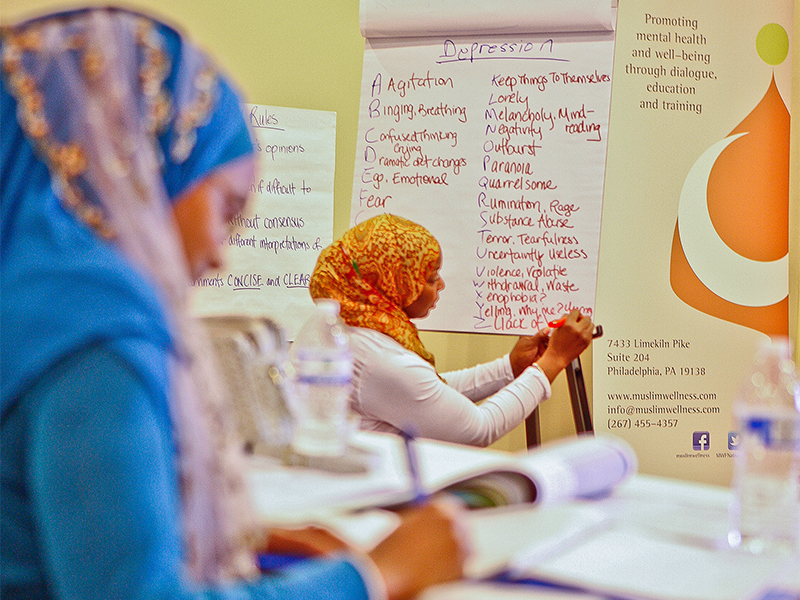From Religion News Service

by Yonat Shimron
RALEIGH, N.C. (RNS) — They meet in a conference room on the second floor of the Islamic Association of Raleigh, a therapist and a member of the mosque experiencing emotional distress.
Sitting around a table in the windowless room, they talk for an hour, during which the therapist draws up a list of referrals to outside experts who can offer specialized help for marital conflict, children’s behavioral problems, depression, substance abuse or other issues.
In the United States, many Muslims are reluctant to seek out mental health professionals because of the stigma attached to mental illness or because they fear that a Western-trained therapist will not understand their culture or religion.
Instead, they turn to imams and other community leaders, who often quietly refer them to mental health professionals. But leaders of the Raleigh mosque, which draws thousands of worshippers a week, realized that mental health issues needed to be dealt with in a more professional and organized way and that the requests were inundating its two religious leaders.
“Our imams get hundreds of requests every week,” said Azleena Azhar, a trained Muslim chaplain and one of the leaders of the referral initiative. “It’s been very overwhelming for them. People are slowly finding out that if they don’t need to get advice from a religious scholar — they can come to the team and talk to someone there instead.”
A year ago, a group of mental health experts who are also mosque members agreed to volunteer their time to provide the service. Members can now go online and pick from among six mental health experts — including a family therapist, chaplain and a substance abuse counselor — for a free and confidential session.






